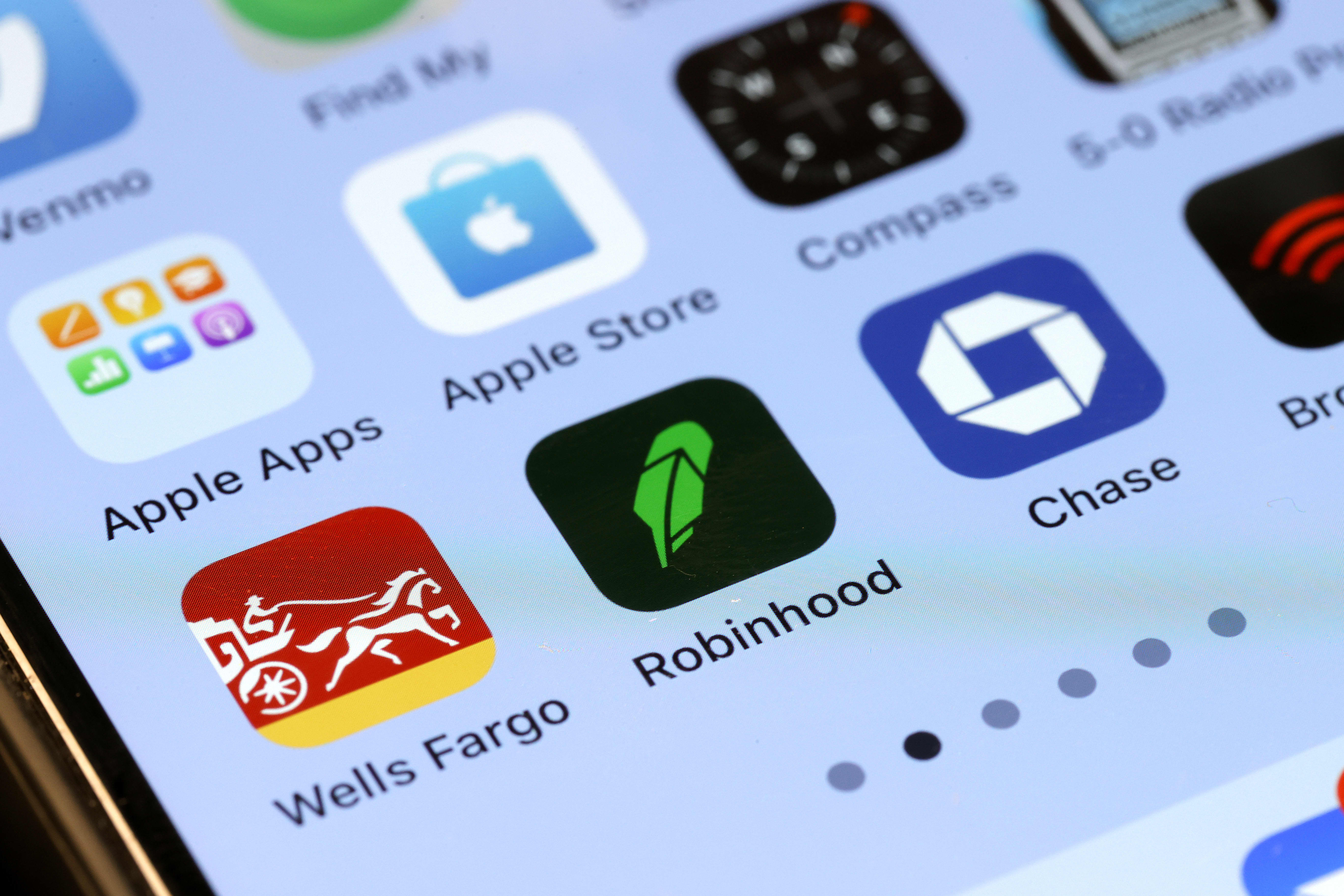In this photo illustration, the Robinhood application is displayed on an iPhone on December 17, 2020 in San Anselmo, California.
Justin Sullivan | Getty Images
Small investors don’t appear to be punishing Robinhood too badly for the controversy surrounding GameStop last week, as the app remains the go-to place for retail clients to trade stocks.
Robinhood led the industry in app downloads last week by a wide margin, according to JMP Securities’ analysis using SimilarWeb app data. The free stock trading-pioneer had over 600,000 people download its app on Friday, compared to 140,000 on its best day in March during the pandemic-fueled market rout last year.
Robinhood had more than 3 million app downloads in the month of January, its highest on record, data showed. Coinbase had 1.3 million and China-owned Webull had more than 800,000 downloads last month.
“Robinhood has actually been adding a tremendous amount of new accounts, both leading into the past week, but also experienced record growth during some of the most challenging days operationally this past week,” JMP Securities analyst Devin Ryan told clients.
Last week, emboldened retail investors trying to stick it to Wall Street pros piled into stocks heavily shorted by hedge funds like GameStop and AMC Entertainment. The Reddit crusade pushed shares of GameStop up 500% in the biggest short squeeze in 25 years, according to Goldman Sachs, and forced several hedge funds to close out their short positions. The rampant volatility even dented the major averages, which had their worst weekly sell-off since October.
Increased capital requirements from the record trading activity forced Robinhood, and other brokers, to put restrictions on stock and options trading on Thursday, which took some pressure off the controversial names. Clearinghouse requirements from the Depository Trust & Clearing Corporation ballooned by a staggering $7.5 billion to $33.5 billion, forcing Robinhood to raise investor money an tap credit lines overnight on Thursday.
Robinhood limited the buying of a handful of stocks, in some cases only allowing clients to by one share of GameStop. The firm also raised margin requirements on certain stock and options.
However, the limitations were met with fury from clients who felt their hands were tied by a firm who built itself on mission to democratize investing. Frustrated clients took to Twitter to denounce Robinhood, with many threats to leave the app.
While some clients left the app for other stock trading platforms like Square’s Cash App, Webull and Sofi, Robinhood continued to be the app of choice for retail investors.
E-trade had its app downloaded nearly 220,000 times last month, according to SimilarWeb data. TD Ameritrade nabbed nearly 370,000 downloads and Charles Schwab had more than 75,000 downloads. Fidelity had its app downloaded 340,000 times and Sofi had more than 121,000 downloads last month.
Can Robinhood handle the wave of new clients?
Robinhood is still limiting trading of certain stocks on Monday. Customers can only buy one share of GameStop’s stock and five options contracts. However, the millennial-favored stock trading app did cut down its list of restricted stocks from as many as 50 on Friday to eight starting Monday.
Amid a surge in new clients, JMP said beefing up its infrastructure will have to be Robinhood’s first move to keep the new investors.
The firm expects Robinhood to increase its capital, technology resources and people so the millennial-favored app can provide full access to its clients.
However, its possible last week’s events pushed some clients away for good. JMP saw mobile-first firms like Webull and SoFi are benefiting from the Robinhood drama, as well as industry incumbents like Charles Schwab and TD Ameritrade.
Square’s Cash App emerged as a winner according to a survey from Mizuho Securities.
“We also expect to see a continuation of strong competitive reactions given the confusion and finger pointing that has been occurring,” said Ryan. “We believe this could drive some level of account movement, but the faster that firms like Robinhood get back to normal operations, the less attrition we would expect.”
Subscribe to CNBC PRO for exclusive insights and analysis, and live business day programming from around the world.
— with reporting from CNBC’s Nate Rattner.
